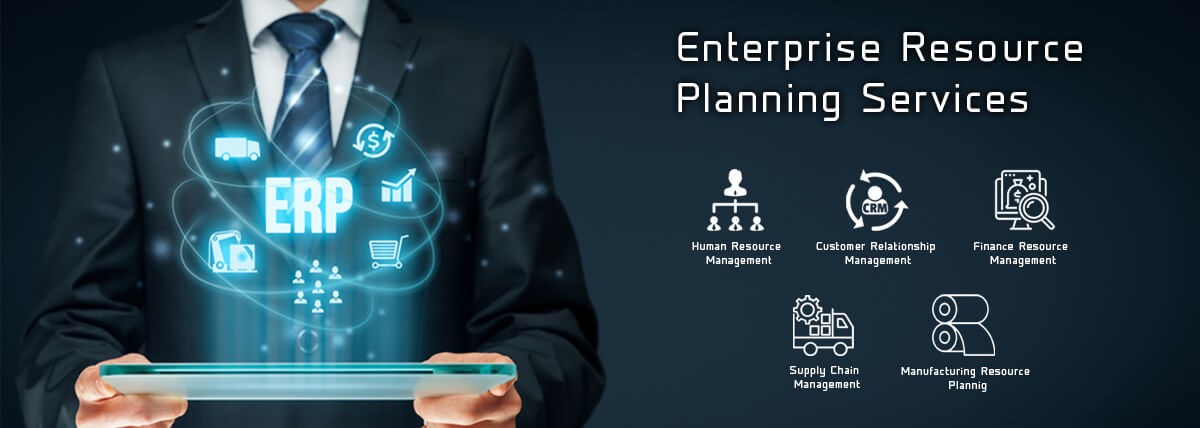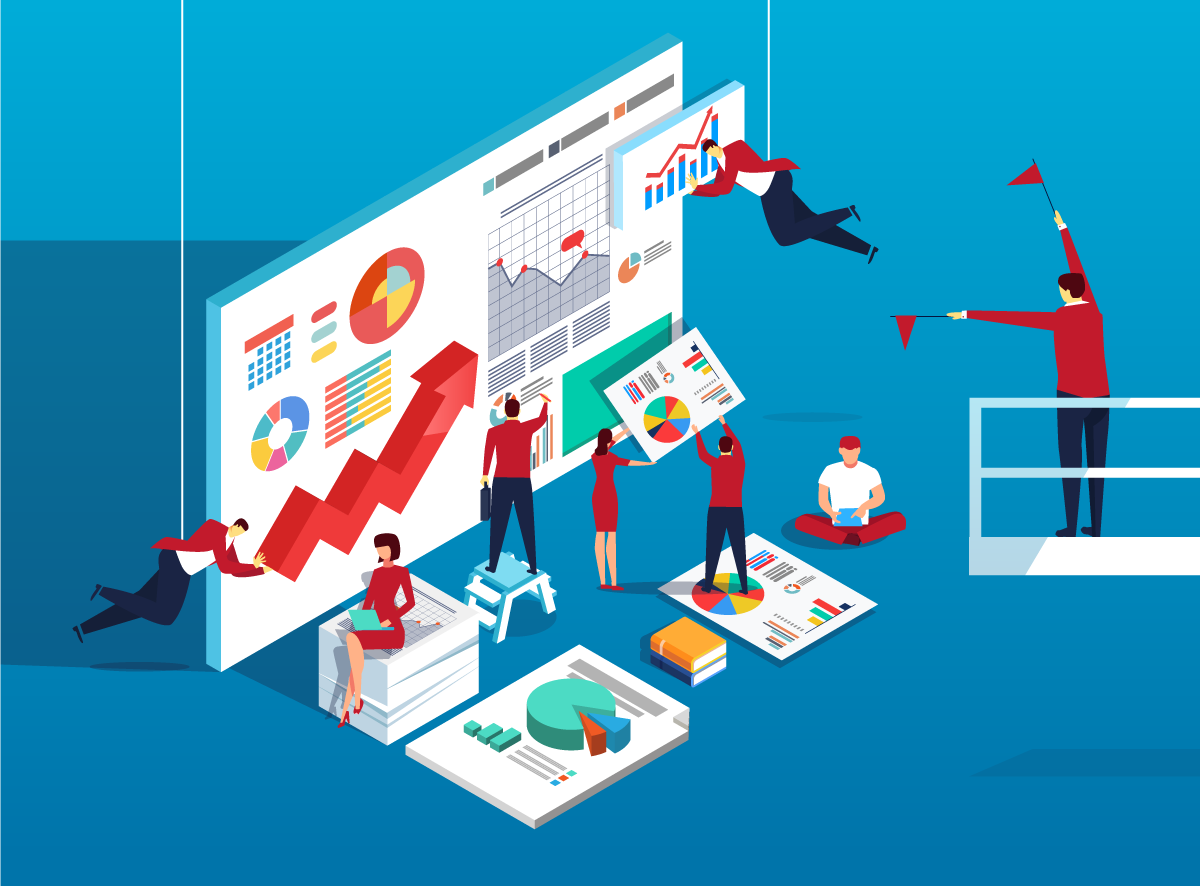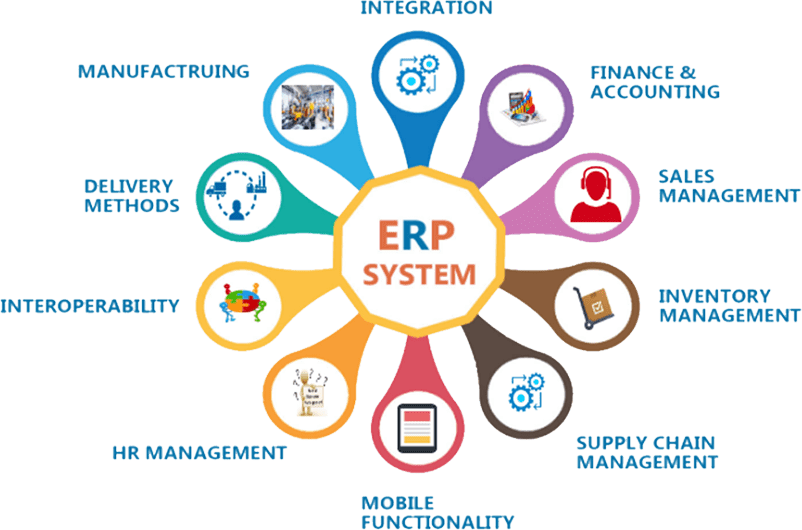
Before solving Problems First of all we need to understand What is ERP Systems ?
Enterprise resource planning (ERP) systems are complete, integrated systems that manage all aspects of a production-based or distribution business, aligning financial management, human resources, supply chain management, and manufacturing or distribution with the core function of accounting. ERP systems are used to provide transparency into the entire business process by tracking all aspects of production or distribution, financials, and back office. These expansive systems act as a central hub for end-to-end workflow and data. A variety of departments can view the information recorded by ERP systems to ensure the correct procedures are taking place.
ERPs are used by manufacturing and distribution companies. Instead of using standalone products (which may not properly integrate) in each separate department, ERP systems provide cohesiveness from the beginning to end of all business processes. This assists in the expansion and growth of a company. While ERPs cover a wide range of functionality within themselves, they may integrate with CRM software and PSA software products. Users may also choose to integrate standalone products to form a unique ERP system. Others might solely select specific modules from an ERP system that are sold uniquely to best match business needs, instead of purchasing the entire suite. Some project-centric companies may run similar project-based ERP systems that do not focus on product manufacturing but still offer an end-to-end business solution.

- Target Group: Manufacturers looking at whether to implement ERP solutions or not.
- Purpose: ERP solutions for everyday challenges in the manufacturing sector
Manufacturers face a lot of challenges in the modern business world. Some of which can be
solved with the help of top ERP software. Gone are the days when ERP was solely useful for inventory management and control in the manufacturing sector. ERPs have evolved in various business fields such as Materials Management, Production Planning & Control, Finance & Accounts, HR & Payroll, etc.
ERP systems provide a variety of modules, and while each business has unique requirements, most ERP systems offer the following:
- Accounting features like general ledger, accounts payable/receivable, budgeting, and cash management
- Human resources (HR) functionality such as recruiting and payroll, or integration with HR and payroll solutions
- Basic sales and customer management features or integration with CRM solutions
- Functions to create different types of quotes, sales orders, and returns
- Purchasing workflows and purchase order management
- Inventory and warehouse management software including picking, packing, and shipping
- Advanced supply chain modules like demand planning and transportation management for distribution companies
- Production modules that include bill of materials (BOM), manufacturing resource planning (MRP), and quality management features for manufacturing companies
- Reporting and analytics for all the modules included in the ERP solution

Conclusion
Increase control over your small business with software designed to grow with you.
- Streamline key processes
- Gain greater insight into your business, and make decisions based on real-time information – so you can drive profitable growth.
- Lower the cost of managing your business, from financials, purchasing, inventory, sales, and customer relationships to project management, operations, and HR.
- Gain clear visibility and complete control over every aspect of your small business.
- Capture critical information for immediate access and use it company-wide.
- Secure the achievement of big dreams and big goals.
- Get a single view of your business in an instant with a flexible, modular, powerful, and simple interface.
Let's get started your business on new digital journey
Send us requirement on [email protected] or Call +91-9898979544

